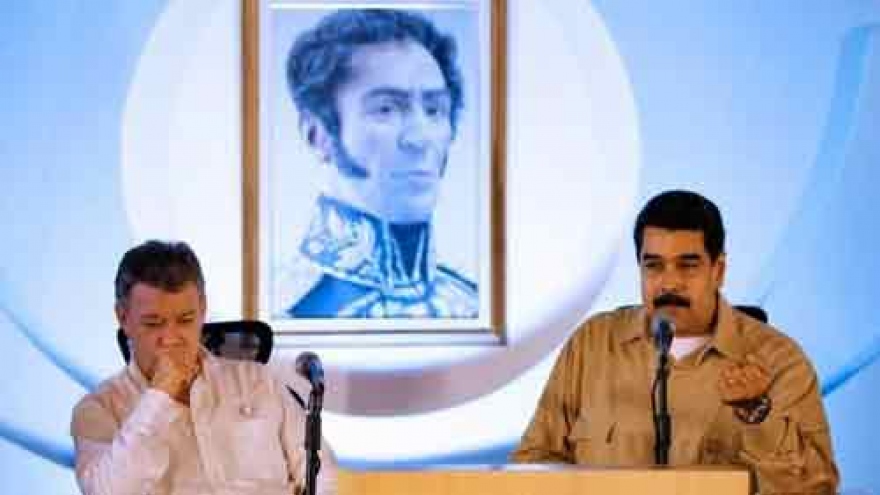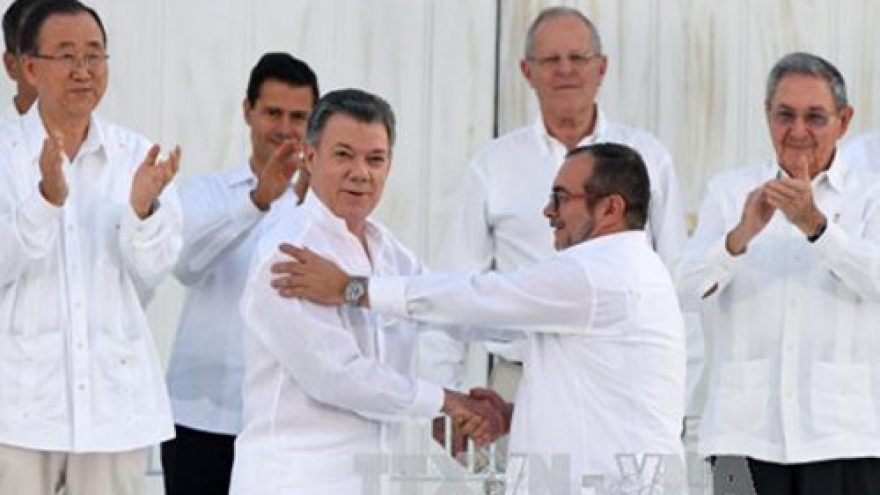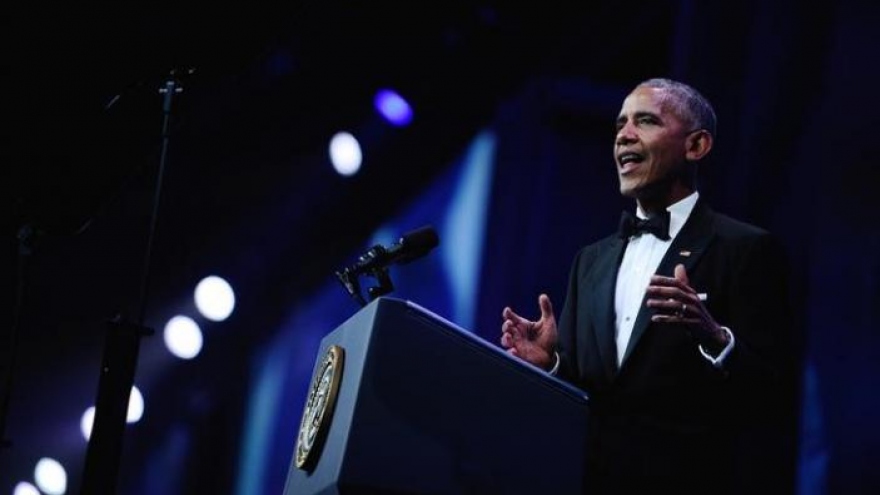Venezuela crisis, Colombia peace dominate Latin American summit
Venezuela's fast-escalating political crisis and Colombia's stuttering peace process dominated the Ibero-American Summit on October 29, despite an official agenda about youth, entrepreneurship and education.
 |
Venezuela's socialist government is facing an escalation of opposition protests after electoral authorities suspended a referendum on President Nicolas Maduro's rule that could have led to his departure from office.
"The neighboring country is suffering a tremendous economic crisis and also a crisis of political rights and also I would say human rights," Peruvian President Pedro Pablo Kuczynski, a former investment banker, told the leaders in the Colombian coastal city of Cartagena.
"There's no eagerness to interfere in what happens in other countries," he said. "But there is eagerness to insure all Latin Americans progress and not regress."
Antonio Guterres, the secretary general-elect of the United Nations, said Venezuela was discussed during the leaders' closed-door lunch.
"I think there was a very clear consensus there is not a solution to Venezuela's problems...without a constructive dialogue between the parties," he said.
Maduro's popularity has plummeted during a deep economic crisis. He was not in attendance at the summit, his foreign minister Delcy Rodriguez said, because he was preparing for a October 30 meeting with the opposition.
Venezuela, despite having the world's largest oil reserves, is mired in a prolonged recession and facing food shortages.
Colombia, meanwhile, is scrambling to save a hard-won peace deal with the Revolutionary Armed Forces of Colombia, or FARC.
The deal, hammered out over almost four years of negotiations, was narrowly rejected in a plebiscite vote this month.
President Juan Manuel Santos has met with the opposition to hear their concerns, and government negotiators are modifying the accord with FARC leadership in Cuba.
Leaders at the summit repeatedly expressed support for the peace process on October 29. The 52-year war has killed nearly a quarter of a million people.
In a separate statement, the leaders called upon the United Kingdom and Argentina to continue negotiations about the fate of the Falkland Islands, which Argentina calls the Malvinas, and find a "definitive solution" to their long-running dispute.




